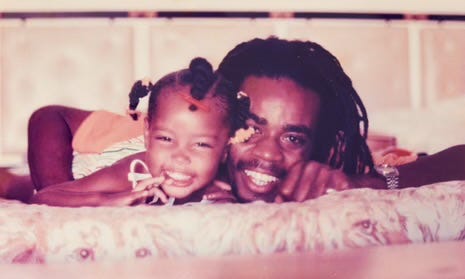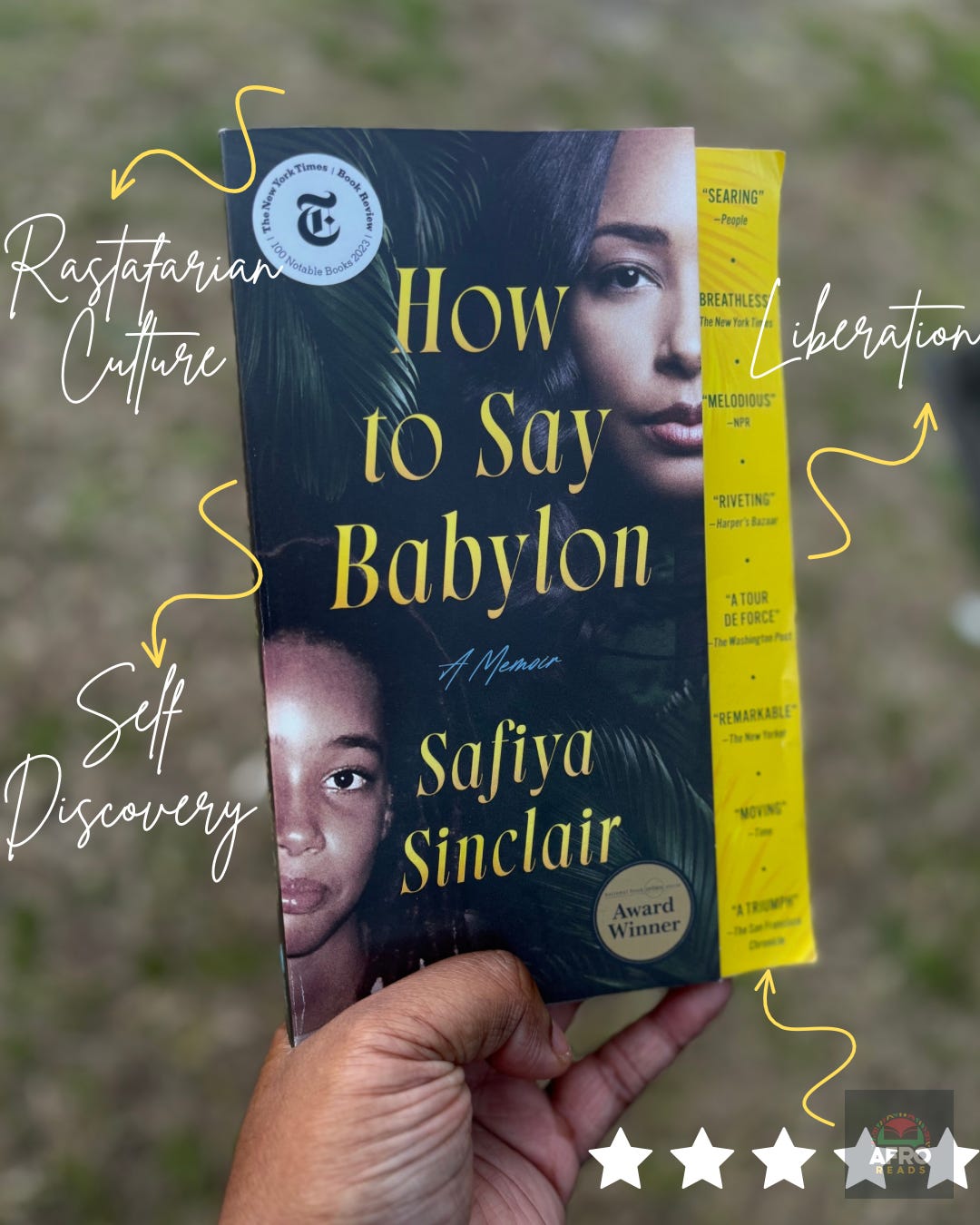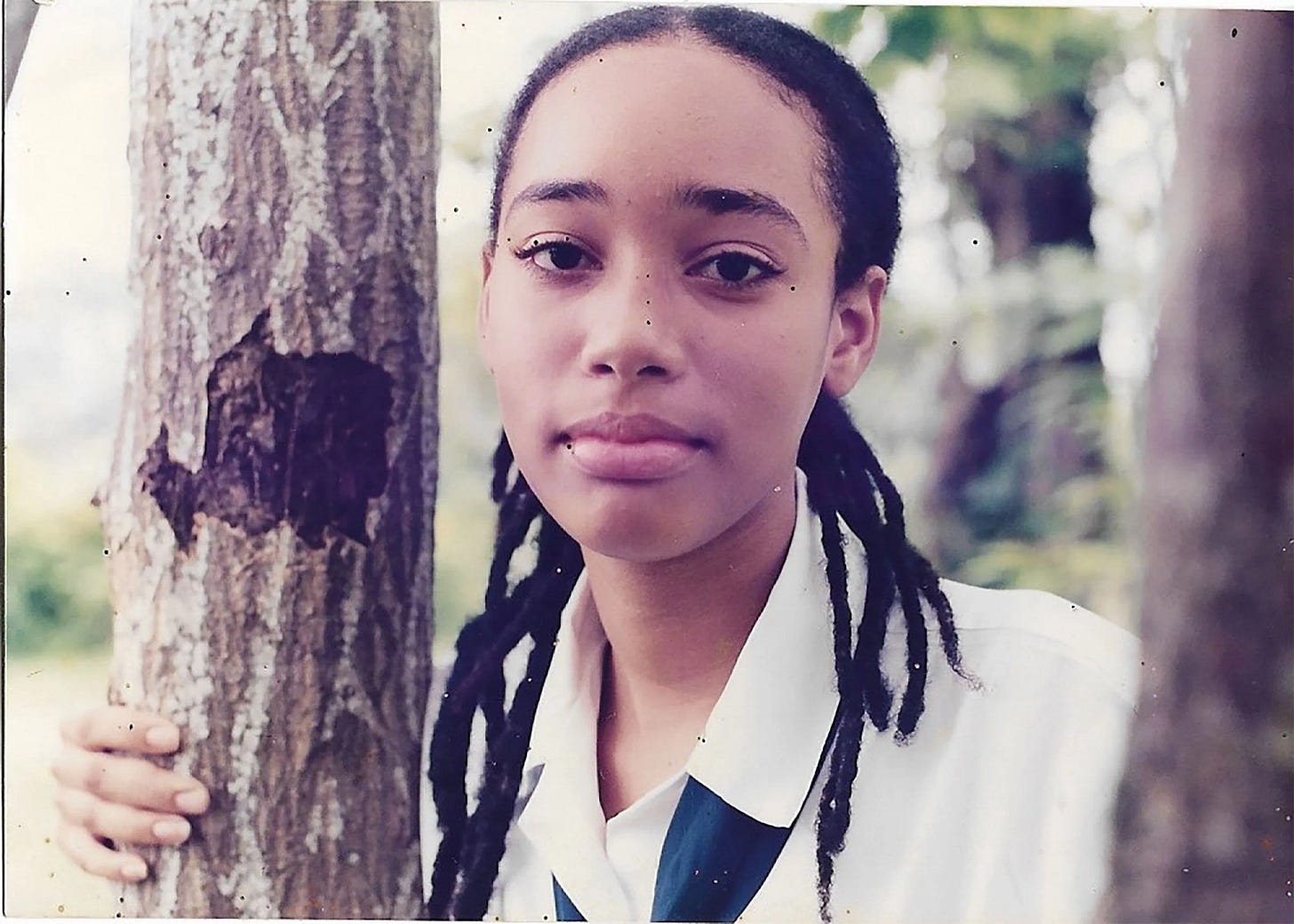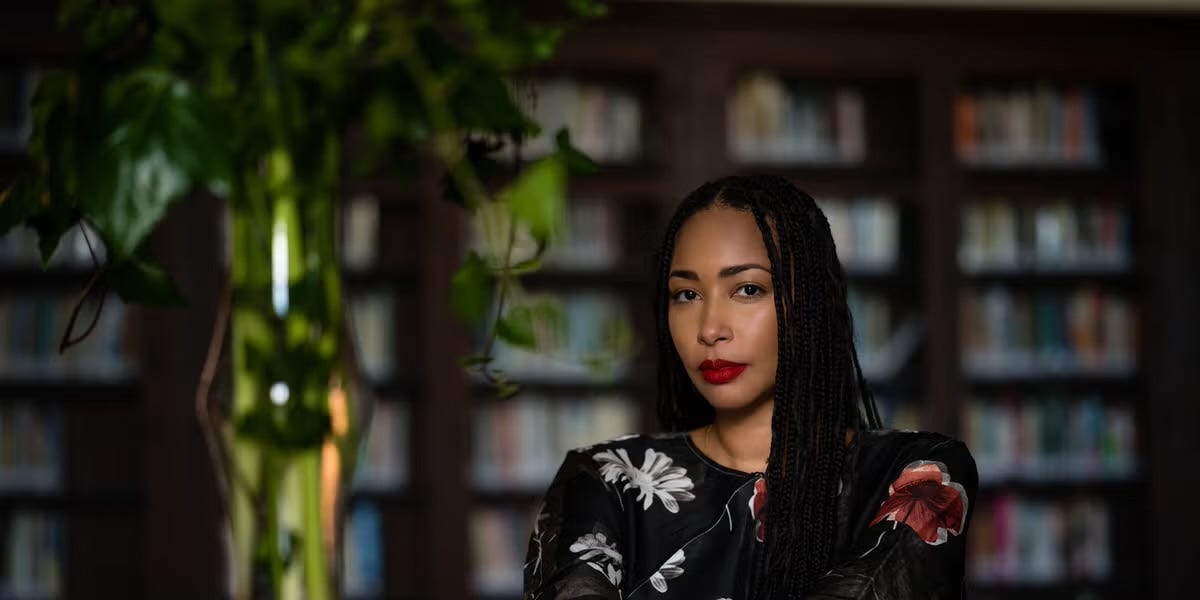Lessons in Liberation: How to Say Babylon
“A book, I soon learned, was time travel. Each page held irrefutable power.” -Safiya Sinclair
In her memoir, How to Say Babylon, Sinclair presents mesmerizing storytelling that intertwines the beauty of poetry with the harsh realities of a childhood marked by control and repression.

Through lyrical prose and vivid storytelling, she recounts her journey growing up in a strict Rastafarian household in Jamaica, where her father’s rigid beliefs clash with her desire for freedom and self-expression. This powerful narrative not only explores the tensions between tradition and individuality but also the resilience required toreclaim one’s own voice.
“His flame burned alive in my father, who was the god of our whole dominion, who slept with one watchful eye on my purity and one hand in his black machete, ready to chop down Babylon, if it ever crept close.”
When preparing to read this memoir have Kleenex on hand & don’t try to suppress your own frustrations. Let’s begin with her parents: two outcasts with their own brokenness fall in love. Their bond becomes the glue that softens them only just enough that they only understand one another. Her mother, a quiet caregiver & nurturer by nature; her father, a militant, reggae musician abandoned by the woman who was supposed to love unconditionally, his mother. All of this because he had grown his hair into locs and became affiliated with Rastafari.1
Their wounds go unhealed and the scarring is passed on to their four children. The eldest child, Safiya, is the first to rebel.
“I was never going to be the perfect daughter. A grin of mischief opened ever so slyly inside me, a seedling of a voice that said ‘no’.”
I became so consumed with this book, that I was oblivious to the happenings around me. Her story resonated with me on levels I did not expect — the pages felt like home. Sheltered children often become rebellious children. I should know because I myself am one, rebellion is now apart of my genetic makeup. Even though, I was raised in a Christian household my parents had their own fear of ‘Babylon’. Like Safiya’s family, we were our own little coven, all we had were each other.
Between the disappointments of her father’s reggae career, abandonment issues, and obsession with the protecting his children, he became a nightmare to live with. One exception was his only son, Lij, whom at first, was treated to the highest regard; but eventually he too would have to face his father’s wrath.
Her mother, who was subjected to not challenge their father, was of no help. Instead she introduced her daughter to poetry. A form of writing that paved the path for her breakthrough.
Please add this to your TBR lists for 2025!! You will not only feel inspired by the young girl who broke the chains for herself and her family, but also view a broader history of Jamaica, & a deep cultural knowledge of being Rastafarian.
Quotes:
Interview 🎙️
Author Spotlight 💡
Sinclair is also the author of the poetry collection Cannibal, winner of a Whiting Award, the American Academy of Arts and Letters Metcalf Award, the OCM Bocas Prize for Caribbean Poetry, and the Prairie Schooner Book Prize. Cannibal was selected as one of the American Library Association's Notable Books of the Year, was a finalist for the PEN America Literary Award and the Seamus Heaney First Collection Poetry Prize in the UK, and was longlisted for the PEN Open Book Award and the Dylan Thomas Prize.
Sinclair's other honors include winning the National Book Critics Circle Award, a Guggenheim fellowship, and fellowships from the Poetry Foundation, Civitella Ranieri Foundation, the Elizabeth George Foundation, MacDowell, Yaddo, the Bread Loaf Writers' Conference, and the Fine Arts Work Center in Provincetown. Her work has appeared in the New Yorker, TIME, Harper's Bazaar, Granta, the Nation, and elsewhere. She is currently an associate professor of creative writing at Arizona State University.
Rastafarian has never been popular in Jamaica or the world. Before the reggae songs of unity; the Rastafarian movement was viewed as a threat because it went against the norms of society. They have an Ital diet and belief system that incorporates a little of the Old Testament. During this time period in Jamaica, adults and children alike feared and bullied the Rastafarians. Even Rastafarian children were only allowed to go to school with other children for a period of time.











Such a superb book. I couldn't believe how much it resonated.
This was among my favourite books of 2024! I loved it sooo much.